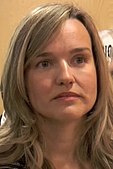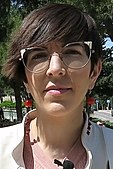2019 Zaragoza City Council election
| |||||||||||||||||||||||||||||||||||||||||||||||||||||||||||||||||||||||||||||||||||||
All 31 seats in the City Council of Zaragoza 16 seats needed for a majority | |||||||||||||||||||||||||||||||||||||||||||||||||||||||||||||||||||||||||||||||||||||
|---|---|---|---|---|---|---|---|---|---|---|---|---|---|---|---|---|---|---|---|---|---|---|---|---|---|---|---|---|---|---|---|---|---|---|---|---|---|---|---|---|---|---|---|---|---|---|---|---|---|---|---|---|---|---|---|---|---|---|---|---|---|---|---|---|---|---|---|---|---|---|---|---|---|---|---|---|---|---|---|---|---|---|---|---|---|
| Opinion polls | |||||||||||||||||||||||||||||||||||||||||||||||||||||||||||||||||||||||||||||||||||||
| Registered | 505,756 | ||||||||||||||||||||||||||||||||||||||||||||||||||||||||||||||||||||||||||||||||||||
| Turnout | 332,813 (65.8%) | ||||||||||||||||||||||||||||||||||||||||||||||||||||||||||||||||||||||||||||||||||||
| |||||||||||||||||||||||||||||||||||||||||||||||||||||||||||||||||||||||||||||||||||||
| |||||||||||||||||||||||||||||||||||||||||||||||||||||||||||||||||||||||||||||||||||||
The 2019 Zaragoza City Council election, also the 2019 Zaragoza municipal election, was held on Sunday, 26 May 2019, to elect the 11th City Council of the municipality of Zaragoza. All 31 seats in the City Council were up for election. The election was held simultaneously with regional elections in twelve autonomous communities and local elections all throughout Spain, as well as the 2019 European Parliament election.
Electoral system[edit]
The City Council of Zaragoza (Spanish: Ayuntamiento de Zaragoza) was the top-tier administrative and governing body of the municipality of Zaragoza, composed of the mayor, the government council and the elected plenary assembly.[1] Elections to the local councils in Spain were fixed for the fourth Sunday of May every four years.[2] Voting for the local assembly was on the basis of universal suffrage, which comprised all nationals over 18 years of age, registered and residing in the municipality of Zaragoza, and in full enjoyment of their political rights, as well as resident non-national European citizens and those whose country of origin allowed Spanish nationals to vote in their own elections by virtue of a treaty.
Local councillors were elected using the D'Hondt method and a closed list proportional representation, with an electoral threshold of five percent of valid votes—which included blank ballots—being applied in each local council.[1][2] Councillors were allocated to municipal councils based on the following scale:
| Population | Councillors |
|---|---|
| <100 | 3 |
| 101–250 | 5 |
| 251–1,000 | 7 |
| 1,001–2,000 | 9 |
| 2,001–5,000 | 11 |
| 5,001–10,000 | 13 |
| 10,001–20,000 | 17 |
| 20,001–50,000 | 21 |
| 50,001–100,000 | 25 |
| >100,001 | +1 per each 100,000 inhabitants or fraction +1 if total is an even number |
The mayor was indirectly elected by the plenary assembly. A legal clause required that mayoral candidates earned the vote of an absolute majority of councillors, or else the candidate of the most-voted party in the assembly was to be automatically appointed to the post. In the event of a tie, the appointee would be determined by lot.[1]
The electoral law allowed for parties and federations registered in the interior ministry, coalitions, and groupings of electors to present lists of candidates. Parties and federations intending to form a coalition ahead of an election were required to inform the relevant Electoral Commission within ten days of the election call, whereas groupings of electors needed to secure the signature of a determined amount of the electors registered in the municipality for which they were seeking election, disallowing electors from signing for more than one list of candidates. For the case of Zaragoza, as its population was between 300,001 and 1,000,000, at least 5,000 signatures were required.[2]
Opinion polls[edit]
The tables below list opinion polling results in reverse chronological order, showing the most recent first and using the dates when the survey fieldwork was done, as opposed to the date of publication. Where the fieldwork dates are unknown, the date of publication is given instead. The highest percentage figure in each polling survey is displayed with its background shaded in the leading party's colour. If a tie ensues, this is applied to the figures with the highest percentages. The "Lead" column on the right shows the percentage-point difference between the parties with the highest percentages in a poll.
Voting intention estimates[edit]
The table below lists weighted voting intention estimates. Refusals are generally excluded from the party vote percentages, while question wording and the treatment of "don't know" responses and those not intending to vote may vary between polling organisations. When available, seat projections determined by the polling organisations are displayed below (or in place of) the percentages in a smaller font; 16 seats were required for an absolute majority in the City Council of Zaragoza.
- Color key:
Exit poll
| Polling firm/Commissioner | Fieldwork date | Sample size | Turnout | Lead | ||||||||||
|---|---|---|---|---|---|---|---|---|---|---|---|---|---|---|
| 2019 municipal election | 26 May 2019 | — | 65.8 | 22.0 8 |
10.1 3 |
28.0 10 |
18.3 6 |
4.6 0 |
1.7 0 |
6.2 2 |
[a] | 6.2 2 |
– | 6.0 |
| GfK/FORTA[p 1][p 2][3] | 26 May 2019 | ? | ? | 18.2 5/6 |
10.9 3/4 |
27.6 9/11 |
15.3 4/5 |
6.5 1/2 |
3.2 0 |
9.6 2/3 |
[a] | 5.6 0/1 |
– | 9.4 |
| KeyData/Público[p 3] | 19 May 2019 | ? | 66.2 | 16.9 6 |
11.7 4 |
24.0 9 |
17.7 6 |
4.8 0 |
2.2 0 |
8.0 3 |
[a] | 8.1 3 |
– | 6.3 |
| A+M/Heraldo de Aragón[p 4] | 9–10 May 2019 | 800 | 68.5 | 21.1 7/8 |
10.3 3/4 |
22.5 8/9 |
19.3 6/7 |
6.7 2 |
2.0 0 |
11.1 4 |
[a] | 5.0 0/2 |
– | 1.4 |
| 40dB/El País[p 5] | 3–8 May 2019 | 800 | ? | 17.8 6 |
14.0 4/5 |
26.1 9/10 |
15.1 5 |
5.2 1 |
– | 10.4 3 |
[a] | 7.4 2 |
– | 8.3 |
| April 2019 general election[4] | 28 Apr 2019 | — | 78.5 | 17.2 (5) |
– | 30.5 (10) |
21.5 (7) |
– | – | [b] | [b] | 12.5 (4) |
14.9 (5) |
9.0 |
| CIS[p 6] | 21 Mar–23 Apr 2019 | ? | ? | 24.2 9/10 |
13.0 4/6 |
23.5 8/9 |
10.7 3/4 |
5.7 1/2 |
3.7 0 |
11.8 4/5 |
[a] | 2.7 0 |
– | 0.7 |
| ElectoPanel/Electomanía[p 7] | 31 Mar–7 Apr 2019 | ? | ? | 23.9 8 |
6.1 2 |
28.9 10 |
13.3 4 |
5.9 2 |
2.6 0 |
6.6 2 |
[a] | 10.2 3 |
– | 5.0 |
| ElectoPanel/Electomanía[p 8] | 24–31 Mar 2019 | ? | ? | 23.6 8 |
? 2 |
29.9 10 |
13.5 4 |
5.9 2 |
2.8 0 |
6.5 2 |
[a] | 10.0 3 |
– | 6.3 |
| ElectoPanel/Electomanía[p 9] | 17–24 Mar 2019 | ? | ? | 23.6 8 |
11.6 4 |
29.9 10 |
13.5 4 |
5.9 2 |
2.8 0 |
[a] | [a] | 10.0 3 |
– | 6.3 |
| ElectoPanel/Electomanía[p 10] | 10–17 Mar 2019 | ? | ? | 24.1 8 |
11.9 4 |
28.6 9 |
12.7 4 |
5.8 2 |
2.9 0 |
[a] | [a] | 11.7 4 |
– | 4.5 |
| ElectoPanel/Electomanía[p 11] | 3–10 Mar 2019 | ? | ? | 23.6 8 |
12.1 4 |
28.2 9 |
13.3 4 |
5.7 2 |
3.0 0 |
[a] | [a] | 11.6 4 |
– | 4.6 |
| ElectoPanel/Electomanía[p 12] | 22 Feb–3 Mar 2019 | ? | ? | 24.1 8 |
12.0 4 |
27.9 10 |
13.5 5 |
5.6 2 |
3.0 0 |
[a] | [a] | 11.1 4 |
– | 3.8 |
| A+M/Heraldo de Aragón[p 13] | 3–4 Oct 2018 | 800 | 64.5 | 27.3 9/10 |
15.2 5/6 |
25.6 9/10 |
18.5 6/7 |
4.9 0/1 |
1.6 0 |
[a] | [a] | 3.0 0 |
– | 1.7 |
| A+M/Heraldo de Aragón[p 14][5] | 11–15 Apr 2018 | 800 | 65.0 | 23.9 8/9 |
19.5 6/7 |
21.8 7/8 |
21.4 7/8 |
4.9 0/1 |
3.6 0 |
[a] | [a] | – | – | 2.1 |
| Fundación DFA/City Council[p 15][p 16][p 17] | 8 Nov–1 Dec 2017 | 1,430 | ? | 23.9 8 |
18.7 7 |
19.5 7 |
17.5 6 |
9.6 3 |
– | [a] | [a] | – | – | 4.4 |
| A+M/Heraldo de Aragón[p 18][p 19] | 22–27 Nov 2017 | 600 | 69.2 | 25.8 9/10 |
17.3 6/7 |
23.4 9/10 |
16.7 5/6 |
7.4 2 |
2.6 0 |
[a] | [a] | – | – | 2.4 |
| 2016 general election[6] | 26 Jun 2016 | — | 72.6 | 33.8 (11) |
– | 22.9 (7) |
17.7 (6) |
– | [c] | [b] | [b] | 0.3 (0) |
21.8 (7) |
10.9 |
| 2015 general election[7] | 20 Dec 2015 | — | 75.6 | 29.1 (10) |
– | 20.2 (6) |
18.8 (6) |
[d] | [c] | 20.7 (7) |
7.0 (2) |
0.4 (0) |
– | 8.4 |
| 2015 municipal election | 24 May 2015 | — | 65.5 | 26.9 10 |
24.6 9 |
18.7 6 |
12.3 4 |
6.8 2 |
2.8 0 |
[a] | [a] | – | – | 2.3 |
Voting preferences[edit]
The table below lists raw, unweighted voting preferences.
| Polling firm/Commissioner | Fieldwork date | Sample size | Lead | ||||||||||||
|---|---|---|---|---|---|---|---|---|---|---|---|---|---|---|---|
| 2019 municipal election | 26 May 2019 | — | 14.2 | 6.5 | 18.1 | 11.8 | 3.1 | 1.1 | 4.0 | [a] | 4.0 | – | — | 34.2 | 3.9 |
| April 2019 general election | 28 Apr 2019 | — | 13.4 | – | 23.8 | 16.8 | – | – | [b] | [b] | 9.8 | 11.6 | — | 21.5 | 7.0 |
| CIS[p 6] | 21 Mar–23 Apr 2019 | ? | 11.4 | 5.8 | 10.2 | 3.0 | 1.0 | 0.8 | 4.8 | [a] | 1.2 | – | 50.4 | 8.4 | 1.2 |
| Fundación DFA/City Council[p 20] | 13 Sep–18 Oct 2018 | 2,072 | 8.4 | 9.8 | 11.6 | 8.6 | 2.4 | 0.2 | [a] | [a] | – | – | 38.7 | 14.1 | 1.8 |
| Fundación DFA/City Council[p 16] | 8 Nov–1 Dec 2017 | 1,430 | 9.0 | 8.5 | 11.7 | 11.0 | 2.7 | 0.6 | [a] | [a] | – | – | 42.2 | 8.5 | 0.7 |
| 2016 general election | 26 Jun 2016 | — | 24.4 | – | 16.5 | 12.8 | – | [c] | [b] | [b] | 0.2 | 15.7 | — | 27.4 | 7.9 |
| 2015 general election | 20 Dec 2015 | — | 21.9 | – | 15.2 | 14.1 | [d] | [c] | 15.6 | 5.3 | 0.3 | – | — | 24.4 | 6.3 |
| 2015 municipal election | 24 May 2015 | — | 17.4 | 15.9 | 12.1 | 8.0 | 4.4 | 1.8 | [a] | [a] | – | – | — | 34.5 | 1.5 |
Results[edit]
 | ||||||
| Parties and alliances | Popular vote | Seats | ||||
|---|---|---|---|---|---|---|
| Votes | % | ±pp | Total | +/− | ||
| Spanish Socialist Workers' Party (PSOE) | 92,823 | 28.00 | +9.33 | 10 | +4 | |
| People's Party (PP) | 73,065 | 22.04 | –4.84 | 8 | –2 | |
| Citizens–Party of the Citizenry (Cs) | 60,552 | 18.27 | +5.99 | 6 | +2 | |
| Zaragoza in Common: United Left–Let's Win Zaragoza–Anticapitalists (ZGZ) | 33,423 | 10.08 | –14.49 | 3 | –6 | |
| We Can–Equo (Podemos–Equo) | 20,551 | 6.20 | New | 2 | +2 | |
| Vox (Vox) | 20,458 | 6.17 | New | 2 | +2 | |
| Aragonese Union (CHA) | 15,311 | 4.62 | –2.15 | 0 | –2 | |
| Aragonese Party (PAR) | 5,608 | 1.69 | –1.13 | 0 | ±0 | |
| Ñ Platform (PAÑ) | 2,584 | 0.78 | New | 0 | ±0 | |
| Animalist Party Against Mistreatment of Animals (PACMA) | 2,079 | 0.63 | –0.55 | 0 | ±0 | |
| Giving More (Demos+) | 782 | 0.24 | New | 0 | ±0 | |
| Blank Seats (EB) | 768 | 0.23 | –1.13 | 0 | ±0 | |
| Communist Party of the Workers of Spain (PCTE) | 229 | 0.07 | New | 0 | ±0 | |
| Social Aragonese Movement (MAS) | 219 | 0.07 | New | 0 | ±0 | |
| Spanish Phalanx of the CNSO (FE–JONS) | 212 | 0.06 | New | 0 | ±0 | |
| Aragonese Land (TA) | 188 | 0.06 | New | 0 | ±0 | |
| Federation of Independents of Aragon (FIA) | 184 | 0.06 | –0.05 | 0 | ±0 | |
| Communist Party of the Peoples of Spain (PCPE) | 164 | 0.05 | –0.23 | 0 | ±0 | |
| Aragonese State (EAR) | 160 | 0.05 | –0.09 | 0 | ±0 | |
| Blank ballots | 2,112 | 0.64 | –1.25 | |||
| Total | 331,472 | 31 | ±0 | |||
| Valid votes | 331,472 | 99.60 | +0.56 | |||
| Invalid votes | 1,342 | 0.40 | –0.56 | |||
| Votes cast / turnout | 332,814 | 65.81 | +0.28 | |||
| Abstentions | 172,942 | 34.19 | –0.28 | |||
| Registered voters | 505,756 | |||||
| Sources[8][9] | ||||||
Notes[edit]
References[edit]
- Opinion poll sources
- ^ "El PSOE ganaría en Aragón y podría gobernar con soltura con la izquierda, según un sondeo". Hoy Aragón (in Spanish). 26 May 2019.
- ^ "El PSOE, primera fuerza política en los ayuntamientos de Zaragoza, Huesca y Teruel". Heraldo de Aragón (in Spanish). 26 May 2019.
- ^ "El PSOE se reforzaría en Valencia, Zaragoza y Sevilla pese al auge de Cs y la irrupción de Vox". Público (in Spanish). 20 May 2019.
- ^ "La izquierda sería mayoritaria en Zaragoza con el PSOE como primera fuerza". Heraldo de Aragón (in Spanish). 20 May 2019.
- ^ "El PSOE lidera en Zaragoza". El País (in Spanish). 19 May 2019.
- ^ a b "Estimaciones de voto en Comunidades Autónomas y grandes ciudades (Estudio nº 3245. Marzo-abril 2019)" (PDF). CIS (in Spanish). 9 May 2019.
- ^ "ElectoPanel municipal (12A): muchas ciudades pendientes de un concejal". Electomanía (in Spanish). 12 April 2019.
- ^ "ElectoPanel municipales (4A): Madrid en Pie no consigue entrar en el Ayuntamiento". Electomanía (in Spanish). 4 April 2019.
- ^ "ElectoPanel Municipales (28M). Mayorías ajustadas en varias ciudades". Electomanía (in Spanish). 28 March 2019.
- ^ "ElectoPanel para municipales (21M): situación estable en la última semana". Electomanía (in Spanish). 21 March 2019.
- ^ "ElectoPanel grandes áreas metropolitanas 14M: la izquierda resiste en Valencia, Madrid se le escapa a Carmena". Electomanía (in Spanish). 14 March 2019.
- ^ "ElectoPanel municipal: distintas mayorías posibles y mucha igualdad en varias ciudades". Electomanía (in Spanish). 7 March 2019.
- ^ "El PP superaría por casi dos puntos a un PSOE en alza y ZEC se desplomaría". Heraldo de Aragón (in Spanish). 14 October 2018.
- ^ "C's se dispararía y tendría la llave para gobernar en Zaragoza, mientras que ZEC se quedaría como cuarta fuerza". Heraldo de Aragón (in Spanish). 23 April 2018.
- ^ "El PP más lejos de obtener la alcaldía de Zaragoza". AraInfo (in Spanish). 26 December 2017.
- ^ a b "Encuesta de Satisfacción de los servicios municipales de la ciudad de Zaragoza" (PDF). City Council of Zaragoza (in Spanish). 26 December 2017.
- ^ "ZARAGOZA. Sondeo Fundación DFA. Municipales. Diciembre 2017". Electograph (in Spanish). 26 December 2017.
- ^ "ZEC se desplomaría frente a la fuerte subida del PSOE y Ciudadanos". Heraldo de Aragón (in Spanish). 3 December 2017.
- ^ "CAPITALES ARAGONESAS. Sondeo A+M. Municipales. Noviembre 2017". Electograph (in Spanish). 3 December 2017.
- ^ "Encuesta de Satisfacción de los servicios municipales de la ciudad de Zaragoza. 2018" (PDF). City Council of Zaragoza (in Spanish). 9 November 2018.
- Other
- ^ a b c Ley 7/1985, de 2 de abril, Reguladora de las Bases del Régimen Local (Law 7) (in Spanish). 2 April 1985. Retrieved 30 June 2020.
- ^ a b c Ley Orgánica 5/1985, de 19 de junio, del Régimen Electoral General (Organic Law 5) (in Spanish). 19 June 1985. Retrieved 30 January 2020.
- ^ "Ayto. de Zaragoza. Sondeo GfK". Aragón TV (in Spanish). 26 May 2019.
- ^ "Electoral Results Consultation. Congress. April 2019. Zaragoza Municipality". Ministry of the Interior (in Spanish). Retrieved 18 May 2019.
- ^ "ARAGÓN. Elecciones municipales. Encuesta A+M para Heraldo. Abril 2018". Electograph (in Spanish). 24 April 2018.
- ^ "Electoral Results Consultation. Congress. June 2016. Zaragoza Municipality". Ministry of the Interior (in Spanish). Retrieved 18 May 2019.
- ^ "Electoral Results Consultation. Congress. December 2015. Zaragoza Municipality". Ministry of the Interior (in Spanish). Retrieved 18 May 2019.
- ^ "Local election results, 26 May 2019, in Toledo, Valencia, Valladolid, Zamora, Zaragoza, Ceuta and Melilla provinces" (PDF). Central Electoral Commission (in Spanish). Retrieved 30 September 2019.
- ^ "Electoral Results Consultation. Municipal. May 2019. Zaragoza Municipality". Ministry of the Interior (in Spanish). Retrieved 1 November 2020.






